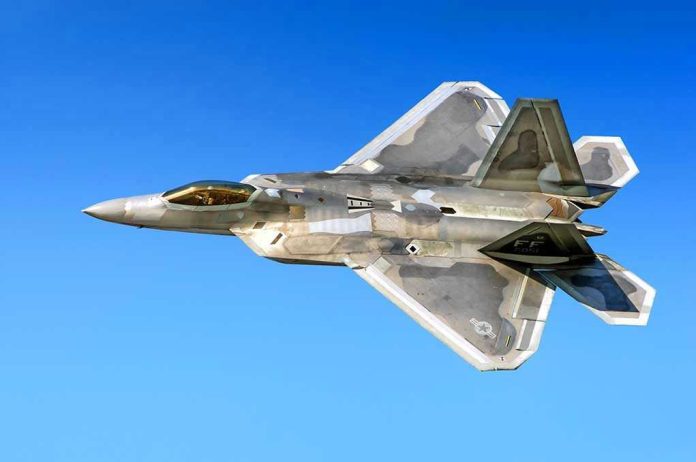
America’s deployment of 10 F-35 fighter jets to Puerto Rico marks a historic escalation in the war against drug cartels—raising both hopes of deterrence and concerns about unchecked military power in the Caribbean.
Story Snapshot
- U.S. sends advanced F-35 stealth fighters to Puerto Rico for anti-cartel missions, breaking precedent.
- Move follows deadly U.S. strike on Venezuelan drug vessel and intensifies military presence near Venezuela.
- Operation aims to disrupt narco-trafficking but raises legal and diplomatic questions.
- Tensions soar with Venezuela, as regional stability and U.S. constitutional oversight face fresh tests.
Deployment of F-35 Jets Signals Major Shift in U.S. Counter-Narcotics Strategy
President Trump authorized the deployment of 10 F-35 fighter jets to Puerto Rico, marking the first use of advanced stealth aircraft in Caribbean anti-drug operations. This move comes days after U.S. forces struck a vessel allegedly carrying narcotics from Venezuela, resulting in 11 deaths. The escalation underlines a new era in America’s response to the persistent threat posed by foreign drug cartels and highlights a commitment to using cutting-edge military technology to protect U.S. borders and families.
Historically, U.S. counter-narcotics efforts in Latin America have relied on surveillance planes and Coast Guard patrols. The deployment of F-35s—designed for air superiority and stealth combat—represents a dramatic shift in strategy. Puerto Rico’s location offers a strategic launch point for rapid response against cartel activity in the southern Caribbean, where narco-trafficking routes remain active. This increased military presence demonstrates a clear message of deterrence to drug cartels and adversarial regimes, but also raises questions about the necessity and proportionality of such force.
Escalating Tensions with Venezuela and Regional Security Concerns
The timing of the F-35 deployment coincides with rising tensions between the U.S. and Venezuela. The U.S. Navy positioned three Aegis destroyers off Venezuelan waters, while Venezuela’s military conducted provocative F-16 flyovers near an American vessel. President Trump’s administration, citing narco-terrorist threats, has promised strong action to secure American interests. Yet, the use of lethal force against alleged cartel members and the lack of Congressional oversight have sparked debate about the legal and diplomatic ramifications, especially as regional governments express concern over sovereignty and U.S. intervention.
Puerto Rican communities and broader Caribbean nations stand at the crossroads of these developments. On one hand, the disruption of drug routes could reduce narcotics inflow and related crime. On the other, increased military activity may heighten fears of conflict and civilian displacement. The Trump administration’s tough-on-crime stance resonates with many Americans frustrated by years of unchecked border issues and cartel violence, but international criticism and calls for restraint are mounting.
Impacts on U.S. Constitutional Oversight and Conservative Values
This operation is viewed by supporters as a victory for national security and conservative values, prioritizing border protection and the fight against organized crime. However, legal experts and scholars caution that deploying military assets for law enforcement risks blurring lines between defense and domestic authority. Without clear Congressional approval, such actions may erode constitutional checks and balances—a concern for those who value limited government and the rule of law.
U.S. sending 10 fighter jets to Puerto Rico for operations targeting drug cartels https://t.co/ZkccSW5QRP
— CBS Mornings (@CBSMornings) September 5, 2025
Military analysts suggest the F-35s serve more as a show of force than as practical interdiction tools. The precedent set by this deployment could influence future policy, expanding the military’s role in domestic and regional crises. As U.S. administration touts successes, citizens are urged to stay vigilant about federal overreach and to demand accountability for decisions affecting constitutional rights, family safety, and America’s global reputation.
Sources:
U.S. F-35 Puerto Rico deployment report
U.S. sends 10 fighter jets to Puerto Rico for strikes against drug cartels
10 F-35s deploying to Puerto Rico as part of growing counter-narcotics mission aimed at Venezuela



